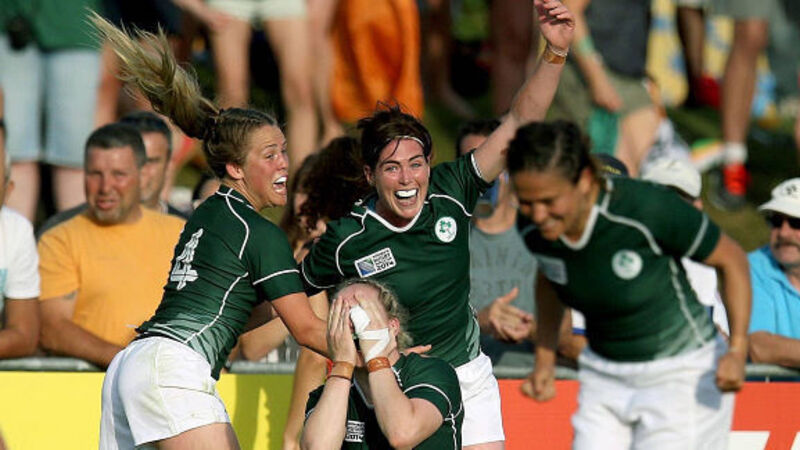Thu, 07 Aug, 2014 - 01:00
Máire de Faoite
It says it all.
No-one predicted the standard of play that Philip Doyle’s players dished out to New Zealand in a Parisian suburb on Tuesday, only themselves.
Already a subscriber? Sign in
You have reached your article limit.
Subscribe to access all of the Irish Examiner.
Annual €130 €80
Best value
Monthly €12€6 / month
Introductory offers for new customers. Annual billed once for first year. Renews at €130. Monthly initial discount (first 3 months) billed monthly, then €12 a month. Ts&Cs apply.
CONNECT WITH US TODAY
Be the first to know the latest news and updates
CourtsRugbyPlace: New ZealandPlace: DublinPlace: BarcelonaPlace: WorcesterPlace: TwickenhamPlace: Edmonton, CanadaPlace: ParisPlace: PauPlace: MarcoussisPlace: Aviva StadiumPlace: Stade Jean BouinPlace: IrelandPlace: CrokPerson: Philip DoylePerson: DoylePerson: Lynne CantwellPerson: Fiona CoghlanPerson: Joy NevillePerson: CantwellPerson: Rosie FoleyPerson: AnthonyPerson: Laura GuestPerson: CoghlanPerson: Henry FordPerson: Nora StapletonPerson: StapletonPerson: Niamh BriggsEvent: Six NationsEvent: MunsterEvent: World CupEvent: 2014 World CupEvent: Grand SlamEvent: World Cup hosts’Organisation: EnglandOrganisation: RTÉOrganisation: ItalyOrganisation: MilanOrganisation: KazakhstanOrganisation: TG4Organisation: Stade FrancaisOrganisation: KiwisOrganisation: women’s rugby teamOrganisation: New ZealandOrganisation: Donegal
















